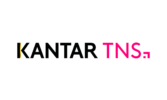Kantar TNS works with a wide range of organisations to help them better understand people. In the UK, 52% of those people are women who, in turn, make 80% of household purchase decisions. In the centenary year of women achieving the right to vote in the UK, Kantar TNS sought to get a deeper understanding of their desires and needs through the What Women Want? initiative.
The Challenge
The 1918 Representation of the People Act was the beginning of a new era, when women were treated as individuals and brands started to see women as consumers in their own right. Yet recent movements, protests and marches would suggest that women still face gendered challenges when it comes to equality of the sexes. Kantar TNS set out to positively and meaningfully add to the discussion about gender equality by exploring the concept of empowerment – and how brands can better connect with women. During the qualitative research phase of the initiative Kantar TNS needed to speak to a wide range of women across the UK who engaged with the gender equality debate; contributing to discussion and raising awareness on social media.
The Solution
Ahead of the qualitative research phase of the project, Kantar TNS tested hypotheses internally to understand the key factors that contribute to a sense of empowerment, which then became the foundation for the discussion.
It was important for all the participants to be passionate about gender equality issues - actively engaging in debates and raising awareness on social media. Kantar TNS partnered with Liveminds using the award-winning Behavioural Recruitment method to find 30 women from across the UK with a spread of backgrounds encompassing a range of ethnicities, socio-economic statuses and life stages. As Behavioural Recruitment is powered by unparalleled social data on 2 billion people the best participants were matched based on demonstrated rather than claimed behaviour.
During a seven-day online community participants were encouraged to share their experiences and opinions. Every day a different theme was discussed with the aim of understanding how these topics impact the participants as women:
- Financial autonomy – Being free to spend my money as I wish
- Sexual/body autonomy – Feeling comfortable and in control of my body and my sexuality
- Freedom of thought & expression – Having my views heard and respected
- Accessibility & visibility – Seeing positive role models I can relate to
- Social connections & networks – Having a network of people I can rely on
Across the seven days, the participants shared lots of rich, varied content, including hand-drawn pictures of what it’s like to be a woman in 2018, photo collages of inspirational women in their lives, a journal that documented all the empowering/disempowering moments experienced throughout the day as well as getting involved in lively, open-minded debate. The qualitative findings fed into a quantitative phase, where the researchers were able to attribute women’s and men’s levels of self-esteem to the themes explored.
The Results
The research showed that women still feel that advertising doesn’t portray the real them, and they still report lower levels of self-esteem than men. Kantar TNS found that women want brands to understand that they’re multi-dimensional. From financial autonomy to sexual and bodily autonomy, the themes explored demonstrate how women are currently not included, and that they want brand narratives and touchpoints to build their self-esteem rather than diminish it.
The broader extent of these findings culminated in the What Women Want? event, run by Kantar and other partners, that included an exhibition, talks, panels and workshops. Behavioural Recruitment by Liveminds was valuable for the qualitative phase of the research, as the breadth of participant experiences, level of engagement and activity across the week certainly contributed to the success of the project.
Suzanne El Ghorab, Associate Director, Kantar TNS said:
The participants and the levels of engagement were fantastic. These women empowered each other over the seven days and the majority of them wanted to keep in touch after the research - which I’ve never seen before. All in all a great result.
Women make 80% of household purchase decisions, and are a massive group of consumers who feel they’re not being reflected, represented or listened to. Read the full research report from Kantar TNS and find out what women want here.




